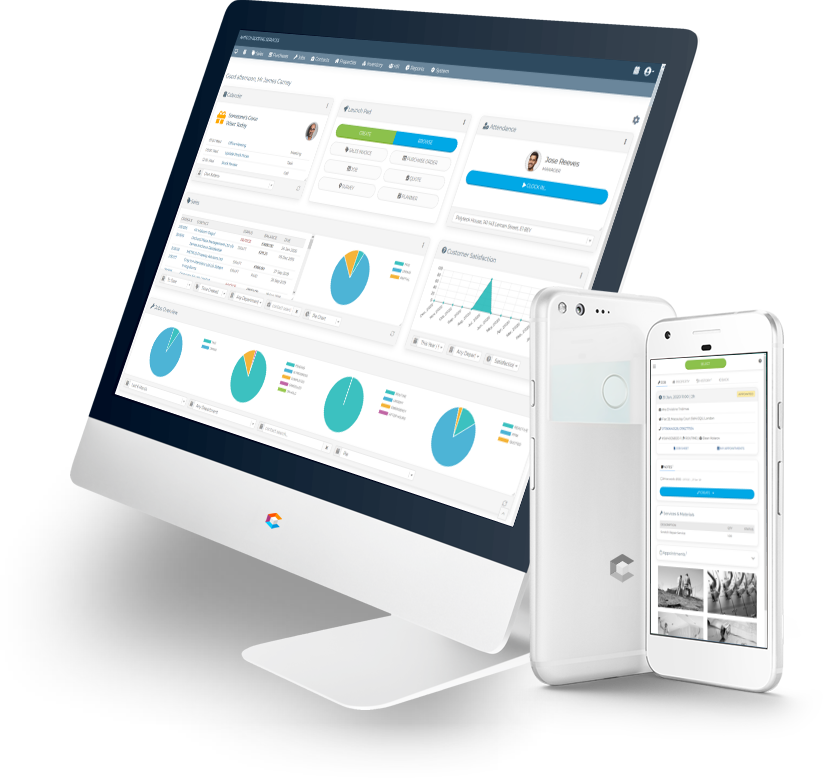HVAC & Air-Conditioning Services
Revolutionizing HVAC and Air-Conditioning Services with ERP Software
In the highly competitive HVAC (Heating, Ventilation, and Air Conditioning) and air-conditioning services and sales industry, efficient management is essential to deliver high-quality service, maintain customer satisfaction, and drive growth. Enterprise Resource Planning (ERP) software like Nettware , offers a comprehensive solution to these challenges by integrating various business processes into a single, cohesive system. This article explores how ERP software can transform the management of businesses in HVAC and air-conditioning services and sales.
The Role of Nettware in HVAC and Air-Conditioning Services
Nettware is a cloud-based management software, which integrates multiple business functions, providing real-time data and insights that enhance decision-making and operational efficiency. For HVAC and air-conditioning businesses, an ERP system can significantly improve coordination, reduce manual errors, and streamline operations.
Key Features of Nettware Software for HVAC and Air-Conditioning Businesses
Work Order Management: Efficiently managing work orders is crucial in the HVAC industry. ERP software can automate the creation, assignment, and tracking of work orders, ensuring that tasks are completed on time and to the required standard. This system can also prioritize urgent maintenance requests, minimizing downtime for clients.
Inventory Management: Effective inventory management is vital for HVAC businesses dealing with various components and equipment. An ERP system automates inventory tracking, ensuring that parts are always in stock and accurately accounted for. This reduces the risk of project delays due to stockouts and helps manage costs by avoiding overstocking.
Scheduling and Dispatch: Coordinating the schedules of technicians can be complex. ERP software streamlines this process by providing a centralized platform for scheduling and dispatching. The system can assign tasks based on technician availability, location, and skill set, ensuring efficient resource utilization and timely service delivery.
Customer Relationship Management (CRM): Building and maintaining strong customer relationships is essential for long-term success. ERP software with integrated CRM capabilities allows businesses to track customer interactions, manage service requests, and personalize communication. This helps in providing a tailored customer experience, fostering loyalty, and encouraging repeat business.
Field Service Management: For HVAC businesses, managing field operations is critical. ERP software can optimize field service management by scheduling technicians, tracking service calls, and providing real-time updates. This improves service efficiency and ensures that technicians have the necessary information and materials for each job.
Financial Management: Accurate financial management is crucial for profitability and compliance. ERP systems offer robust financial modules that handle accounting, budgeting, billing, and financial reporting. By automating these processes, businesses can reduce errors, improve financial visibility, and ensure compliance with industry regulations.
Analytics and Reporting: Data-driven decision-making is essential in today’s competitive landscape. ERP software provides powerful analytics and reporting tools that offer insights into various aspects of the business. From sales trends to operational efficiency, these insights enable businesses to make informed decisions, optimize processes, and identify growth opportunities.
Benefits of Implementing ERP Software
Increased Efficiency: By automating routine tasks and integrating various business processes, ERP software significantly boosts operational efficiency. This allows employees to focus on more strategic activities, improving overall productivity.
Enhanced Accuracy: Manual data entry and fragmented systems are prone to errors. ERP software minimizes these errors by providing a single source of truth, ensuring data accuracy and consistency across the organization.
Improved Customer Service: With real-time access to customer information, work order status, and inventory levels, businesses can respond more quickly to customer inquiries and provide accurate updates. This enhances the customer experience and builds trust.
Scalability: As businesses grow, their operational needs become more complex. ERP software is scalable, allowing businesses to add new modules and functionalities as needed. This ensures that the system can grow with the business, supporting expansion and diversification.
Regulatory Compliance: Staying compliant with industry regulations is essential to avoid penalties and legal issues. ERP software helps businesses adhere to regulatory requirements by providing tools for accurate record-keeping, reporting, and auditing.
Choosing the Right ERP Solution
Selecting the right ERP solution is crucial for maximizing its benefits. Businesses should consider factors such as industry-specific features, ease of use, scalability, and vendor support. Additionally, involving key stakeholders in the selection process and conducting thorough needs assessments can ensure that the chosen ERP system aligns with the business’s goals and requirements.
In the HVAC and air-conditioning services and sales industry, Netfforce as a business management platform is a transformative tool. By streamlining operations, improving accuracy, and providing valuable insights, ERP systems enable businesses to enhance efficiency, boost customer satisfaction, and drive growth. As technology continues to evolve, businesses that leverage Nettware software will be well-positioned to stay ahead of the competition and achieve long-term success.

